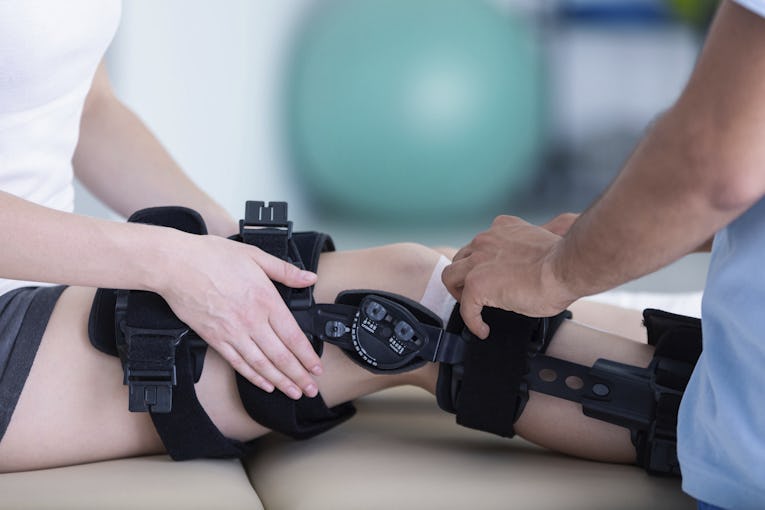Get Back to Your Life Faster with Physical Therapy After Your Surgery
We’re sure of one thing without even asking: you want to heal your surgery as soon as possible! Who wouldn’t, after all? Surgeries are pretty intense events and most people who experience them find themselves down for the count for a few weeks afterward. It’s only natural that you may wonder how long you’ll be unable to work, play the sports you love, or function independently. This is where Post-Surgical Rehabilitation becomes important.
If you have a procedure coming up while you're preparing for the surgery, it's natural to be a little anxious and wonder how easy it will be for you to recover.
Luckily, understanding that you have a post-surgical rehabilitation schedule can help to relieve some of the stress.
They're all trained specialists who know how to properly evaluate a variety of pain conditions and create a recovery plan so you can get back to your life faster!
Common surgical procedures physical therapy can help you recover from
When conservative treatment options for an injury or health condition fail to provide effective relief, many physicians will recommend surgical correction.
Some common conditions that may lead to surgery include, but are not limited to:
- Full or partial knee replacements
- Heart surgery - ablations, stent placements, cardiac pacemakers, etc
- Rotator cuff tears
- ACL, MCL, and/or meniscus repairs
- Total hip replacements
The impact of these procedures on your body should not be underestimated. Most procedures result in some level of pain, inflammation, mobility limitations, and swelling.
You will likely have to relearn how to walk and get ready to help your tissues recover and avoid chronic dysfunction.
After your procedure, our Hampstead Topsail Physical Therapy or Sneads Ferry Beach, NC physical therapists will teach you the correct and safest way to complete daily tasks such as getting out of bed or dressing.
Your surgeon will also outline these instructions which may include hip precautions, sternal precautions, spine precautions, not putting weight on your limb, etc.
Benefits of physical therapy after surgery
Physical therapy is typically indicated following an orthopedic surgery such as operations on the hip, knee, shoulder, wrist, hand, neck, foot, ankle, and spine to facilitate a speedy recovery. Physical therapy can start anywhere from a few hours to a few days after surgery and in some cases there may be a period of immobilization following surgery.
A patient’s ability to regain motion, strength and ultimately return to their daily activities depends on physical therapy. The body will not regain normal motion without specific retraining. Physical therapists are specifically trained to restore range of motion and strength without compensation and to prevent re-injury during the recovery process. The therapist can also provide the patient with specific guidelines to allow optimal healing.
After a thorough evaluation by a physical therapist, goals will be set to minimize the adverse effects of surgery such as pain and swelling as well as to restore normal movement, flexibility and function. The therapist and patient will work together to establish functional goals related to resuming normal activities of living as well as preventing an injury from recurring. The therapist will then design an exercise program tailored specific to the patient’s needs and abilities, and work.
Therapy is often divided into distinct phases. The first comes immediately after surgery when the body part may be immobilized while pain and swelling subside. Then comes a series of progressively challenging exercises to restore range of motion, stability, and strength. The final goal is to return the patient to a pre-injury activity level.
Post-operative treatments may specifically include:
- Strategies for pain reduction including modalities such as ice, heat, and electrical stimulation
- Manual therapy techniques
- Flexibility exercises to improve range of motion
- Exercises to strengthen muscles
- Posture, balance, and coordination training
- Gait analysis and training
- Self-care training
- Home exercise instruction
Post-surgical rehab can have you back on your feet in no time
Don’t wait to set up your post-operative rehabilitation plan. If you're planning to have surgery soon, give us a call today so we can help you get ahead of the game!
We'll give you everything you need to get back to your life as quickly and as easily as possible!



